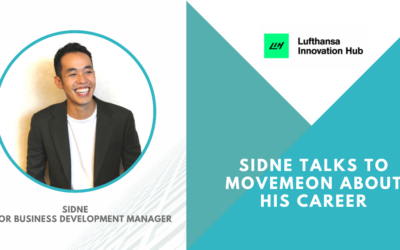No matter what stage we find ourselves at, we all have thought about career change at some point in our careers. At the same time, this is a daunting topic as it will impact all areas of your life. Whether you are 30 and looking to buy a property or in your 50s preparing to save for retirement, career change is a serious decision. We understand this change can be scary and so big it’s actually stressful to even start thinking about it.

That’s the reason why we have compiled our best tips on this page and in an ongoing series of articles. Our aim is to help you understand what a career change involves, and how to approach it strategically. We also want to guide you through the process. From browsing jobs to the final stage of interviewing for your dream job, we’ll be there. Below, you will find a high-level exploration of your most frequently asked questions, and a list of useful resources we have created to help you. Please note that this page will be updated regularly to keep up to date with the latest changes to the job market. So make sure to subscribe to our monthly newsletter to receive any updates straight into your inbox:
What is career change?
Before engaging in a career change, it’s great to take some time to reflect on yourself. First and foremost, do you know the difference between a job change and a career change? And which one is the right option for you?
A job change is when you use your skills and experience to apply to a different industry (or a different company). Whereas a career change is when you look to develop new skills in order to join a completely different industry and job type. Most people who go for a career change will usually look to get training to work in an industry they are passionate about. For instance, take a course in Python to develop your coding skills to work in Tech, or research trends in philanthropy to join an NGO.
You might also hear about career transition. This is essentially the exact same thing as a career change, but also encompasses the process that happens before the actual change. On the other hand, career advancement is quite different as it refers to when you move upward the career ladder. If you are an Analyst and get a promotion or a new job to Manager level, we can speak of career progression or advancement. More often than not, career changers do not experience a progression in seniority as they tend to start this new career from scratch.

Once you have figured out that what you want to do is change careers, you need to find out what career would make you happy. It’s quite easy to think we’d love to be a lawyer, a human rights advocate, or a game developer. But taking the leap to actually become one is a whole different story. The idea might sound attractive, but how can you find out what career would actually fulfil you? That’s when having some experience as a consultant can come in handy. You will have worked on a range of projects with varied clients, and it gave you a glimpse of different industries’ day-to-day.
Pros and Cons of a Career Change
Changing careers is personal – what might be a positive for you might be a deterrent factor for another. For this reason, we decided against listing the pros and cons of a career change. Instead, we answer the three main questions that will help you figure out the balance between pros and cons.
Is it worth it?
The main question to ask yourself is to know whether all your work and efforts will pay off. This is the biggest question and the one that’s the hardest to give a definite answer to. First of all, we only tend to see something as worth it once it’s done. Secondly, this will depend on the change you’re operating and the socio-economic conditions.
However, career changers seem to confirm that this change was the best thing they could have done. They all agree that this was the best thing they could’ve done both professionally and personally. There is a tendency to confess changing careers was not easy and took a long time. It involves some self-sacrifice, but it is all made worth it by global satisfaction in the end. People who changed careers and wish they hadn’t tend to confess a lack of organisation and forecasting before actually taking the leap. Read on below to make sure you prepare as best as you can.
What about my finances?
You need to consider financial implications when you’re thinking of leaving consulting or your current industry. Most of the time when changing careers, you will need to take a step down in responsibility and compensation. You need to ensure that you can sustain your current lifestyle with a lower salary. If not you can use the job-hunting period to revise certain costly habits that you can put on hold for the next year or so. In the meantime, you can progress in your new career and get back to a similar compensation level. Or stick to your new habits if you found them better!
If you quit your current role without anything lined up yet, then you need to prepare even more. You need to make sure you have enough savings to pay all your bills/mortgage/etc. whilst you’re job hunting. It takes on average between 6 and 12 months to find a new role. So the best is to plan how much money you would need to go on for a year without a salary. You can use this period when you’re saving up to prepare for the other aspects of your job change, like upskilling, volunteering, etc.
But perhaps you’re really unsure of your finances, or you’re not in a position where you can take any risk. Then you can consider offering your expertise as a freelance consultant. Going freelance is a relatively easy career change that actually pays well. You can either work on a project for a couple of months or also fill an interim position. The latter would last longer and compensation would be similar to that of a permanent position
How to stay motivated?
Because changing careers can be such a long process, it’s very easy to lose motivation over time. The best way to tackle this is to be super organised from the get-go and plan a very strong strategy to achieve your goal. Make sure the end result drives you, and reward yourself with more attainable goals throughout the process. Maybe you want to be a Product Manager and you set yourself up to upskill, be mentored, etc. Having a multitude of smaller, more easily attained objectives will help you feel fulfilled and see that you’re making good progress.

Tips to get started
We’ve compiled our top tips to start your career change and here are the main takeaways:
- Build a clear and honest picture of your current situation. Figure out your financial situation and where you’re at in your career.
- Research your ideal career and job. Make sure you can forecast the evolution of the role in the next 5-10 years. Talk to people who work in this industry as well as other people who changed careers.
- Take your time to ensure you’re doing the right things and divide your move into several smaller stages. That way, you’ll stay motivated and on top of everything. This will help you make sure you commit to the change.
Changing careers is a challenging process that requires a lot of preparation and commitment. Equally, this is a rewarding step to take in order to live a more fulfilling life. It’s completely normal to have a myriad of questions when you’re about to take such a leap of faith. That’s why we are sharing our tips and insights in our Career Change series – to help you navigate through the process as smoothly as possible. The best way to do that? It’s to make sure you are completely on top of market trends and know everything there is to know about your chosen industry and ideal function.
Browse new opportunities to stay on top of current market trends and requirements. Sign up on Movemeon to see what companies in your industry are looking for the most and what skills they require from ideal candidates.



